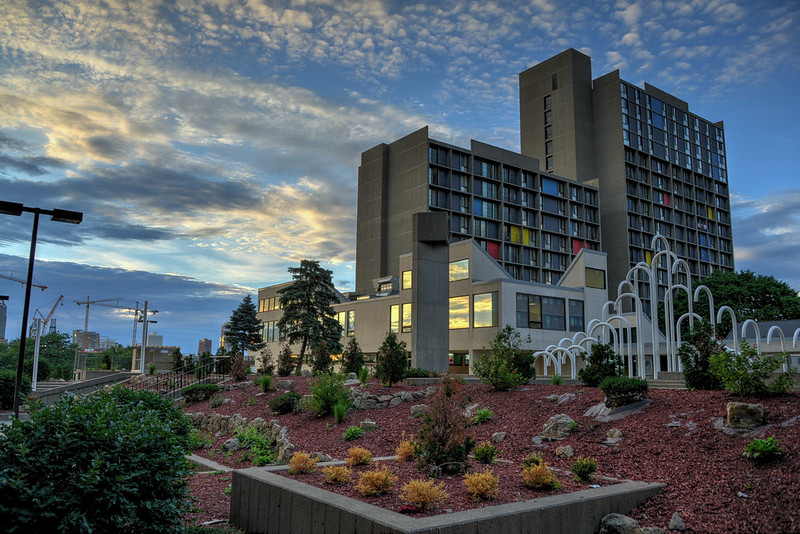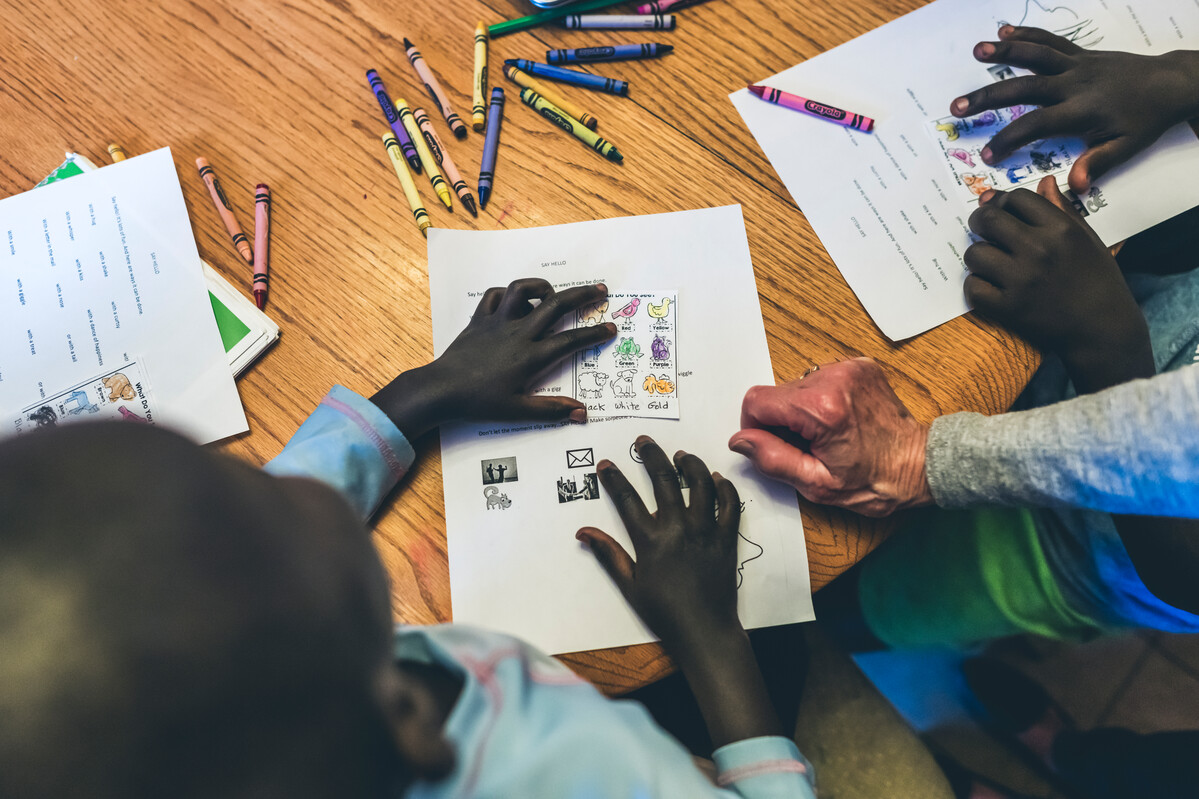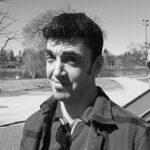 In this 3-part story, Timothy Paulson, Arrive Ministries’ Immigration Counselor introduces us to the in-depth story of a Somali man, Musa, who Arrive Ministries resettled, assisted in applying for his green card, and helped him and his family become U.S. citizens.
In this 3-part story, Timothy Paulson, Arrive Ministries’ Immigration Counselor introduces us to the in-depth story of a Somali man, Musa, who Arrive Ministries resettled, assisted in applying for his green card, and helped him and his family become U.S. citizens.
This story is a rare look into Musa’s life story from his difficult childhood due to extreme tribalism in his homeland of Somalia (part 1), to finding himself separated from his family as a person with refugee status in Thailand (part 2), to his harrowing journey to the United States, as well as his hopes for this nation (part 3).
Part 2/3
Musa had just awoken to find himself alone in Thailand. The deal he had struck with the smuggler was to be transported to England, where Musa would file for asylum and then bring his family to join him. Instead, the man whom he had contracted to take him to London dumped Musa at a cheap hotel in Bangkok and left him to fend for himself.
“I sat for a long time at a table at the hotel, waiting to see if the man would come back,” Musa said. The man never returned.
[pullquote style=”left” quote=”dark”]I had nothing. I could not speak the language. Life was hard and scary. I had a hundred dollars, and it was gone right away[/pullquote]“Here in America you have a cell phone, you have a hospital you can find, or you can go to a restaurant and ask for food. There, I had nothing. I could not speak the language. Life was hard and scary. I had a hundred dollars, and it was gone right away,” he said with a snap of his fingers.
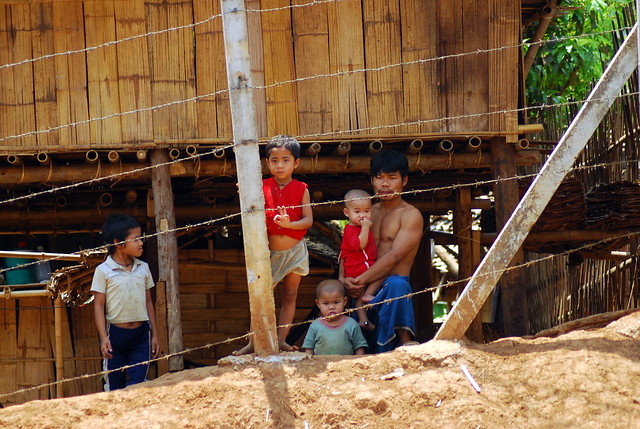 It must have been much cheaper for the smuggler to buy tickets to Thailand instead of England. Apparently, the entire plan had been to cheat Musa out of the money he and his family had painstakingly collected to secure his safety.
It must have been much cheaper for the smuggler to buy tickets to Thailand instead of England. Apparently, the entire plan had been to cheat Musa out of the money he and his family had painstakingly collected to secure his safety.
Musa wandered around Bangkok searching for anyone who spoke a language he could recognize. “It was like life and death. I did not have a phone or anyone I could call. I could not communicate with anyone that I knew to ask for help.” Eventually, he ran into some people from Ghana, a country in West Africa. They spoke English, so he asked if they knew any Somalis. Thankfully, they gave Musa directions to a restaurant owned by a man from his homeland.
“This Somali man took me to his apartment and he helped me a lot. He let me have a place to live, food to eat. He showed me where the UN [United Nations] office was, and how to apply there for refugee status. I saw all these other refugees like me from all these countries, and that was when my life in Thailand began.”
The United Nations has programs in many countries for registering and assisting people who are refugees from their countries of origin. They facilitate the process for people who qualify as they seek to resettle in a third country, especially focusing on the most vulnerable ones who have no hope of returning to their homelands. So, Musa began the long waiting process as he sought to adjust to life in Thailand.
“I was there about one year before I was able to bring my wife and daughter to join me. Refugees are not allowed to work in Thailand; at any minute, I could be arrested. I had one friend who spent three years in jail just waiting for some kind of relief.”
[pullquote style=”left” quote=”dark”]…when you are in survival mode, you don’t think about what is possible or impossible, you think of what you need in the moment to live.[/pullquote]Having heard the stories of other immigrants who have sought survival in countries that restrict movement and employment, I knew that this was not usual. Even so, I wondered aloud how Musa survived in a place where he did not speak the language and where it was illegal for him to work.
“First, God helped me a lot,” he responded. “Also, when you are in survival mode, you don’t think about what is possible or impossible, you think of what you need in the moment to live. I asked how I could adapt.” Musa told me his knowledge of English helped, because he got some work with a local organization that partnered with the UN to help refugees. They provided medical assistance, education, food, and other forms of help to refugees. Musa was paid a stipend of about $160 per month to do interpretation work. When I asked him how much he paid in rent, he smiled and said, “More than $160.”
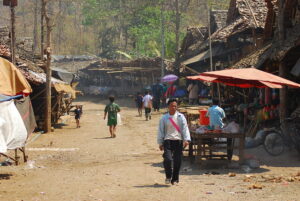
Stock Photo of Thailand Refugee Camp
I shook my head as I thought about Musa’s predicament. Here, one might relocate or add a second job to make ends meet, but as an unwelcome refugee in Thailand, Musa didn’t have the luxury of such options. I asked the obvious question: “Well, how did you make ends meet?”
“You have to be smart and good with people,” he said with a shrug.
It turned out that Musa’s resourcefulness led him to make an important personal connection; he found a Somali friend who “knew a guy.” This guy was a certain Father Dan, an American priest and psychologist who assessed refugee candidates for psychological trauma or related issues that might require treatment.
“I would just interpret for him, but then this guy wanted to hang out with me on Sundays. I would go and spend time with him – it was a relief to spend time outside of the work. When my wife came, Father Dan let us live in an extra condo that he had purchased several years before. He arranged transportation for us, and I never had to pay rent.” Often, people in Musa’s situation would have to fit in small apartments with multiple other families, but Father Dan made it possible for Musa’s family to live more comfortably. This also allowed Musa to use his income for other crucial provisions rather than all of it going for rent.
Finally, in 2012, after 5 long years of waiting, Musa’s chance came. He was told that he would be sent with his family to live in the United States.
[pullquote style=”right” quote=”dark”]It was the easiest time in jail because I knew we were leaving.[/pullquote]Even so, the departure from Thailand was not easy: “It was illegal for people like us to live there as a refugee, so you had to go to court before leaving the country and confess to illegal residency. They would put you in jail for seven days and then let you go.” When asked how this last obstacle in Thailand felt, Musa just smiled and shook his head. “It was the easiest time in jail because I knew we were leaving.”
Musa and his (now) family of five arrived in Minnesota. I couldn’t quite imagine what it must have been like for Musa and his family to find themselves in a secure setting after living with so many unknowns for so long. “What was it like for you to come to America after all that you had been through?”
Musa thought for a moment before answering. “When we came, I felt like someone who was unconscious and now I am conscious. It was like opening a door, or like being born. My children will survive; they will grow. I can’t even describe it. We went from hopeless to hope—like night to day.”
In Thailand, Musa and his wife lived with perpetual worry. There was no guarantee Musa would be resettled, and he could have been arrested at any moment. His wife and children could barely bring themselves to leave the house because they were also at risk of being jailed. Musa recalled, “You ask a million questions a day because you can be arrested at any time.”
Long after the interview was over, I sat at home and tried to put myself in Musa’s shoes for a moment. Living in fear of being arrested simply for trying to survive in a foreign land was incomprehensible to me. But I did know why people like Musa go to such lengths to seek something better. After all, I myself have recently become a father, and I know that I would go to the ends of the earth to seek safety and hope of a future for my family. Looking at Musa’s story, I knew that he had simply obeyed that instinct because circumstances had forced him into making an incredibly difficult decision.
Having heard the story of Musa’s journey to the United States, I turned to the topic of Musa’s current situation in America with his family. “How do you feel about where you are now? How have you adapted to life in the US?”


